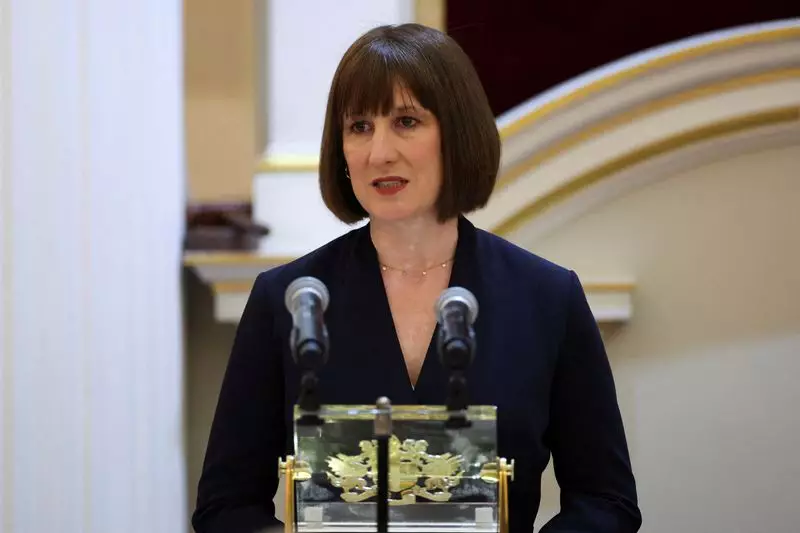Britain is navigating a precarious economic situation, with Finance Minister Rachel Reeves and Prime Minister Keir Starmer facing a rapidly declining market. Recent trends suggest that external factors, particularly international economic developments and political changes abroad, are significantly impacting the local economy. The unpredictable nature of rising government borrowing costs and a weakening pound illustrates a broader dilemma that is proving difficult for the British leadership to control.
A notable point of concern is the potential influence of former U.S. President Donald Trump on global markets. Speculation surrounding Trump’s policy intentions raises crucial questions about how forthcoming economic data from the United States may further shape or exacerbate Britain’s financial state. During these critical moments, the government’s focus should be on assessing how to stabilize domestic fiscal practices while understanding that their control over global economic factors is limited.
In an effort to regain composure in the face of this economic uncertainty, Reeves is adamant about adhering to her fiscal targets despite the recent tumult in public finances correlated with soaring borrowing costs. Her commitment to achieving specific budgetary objectives is underscored by the alarming rise in 30-year gilt yields and the dip in sterling value. However, such rigid adherence raises the question of flexibility—can the government realistically deliver on these targets without resorting to unpopular measures such as spending cuts or tax hikes?
The previous Conservative government’s legacy looms large over current discussions, as public finances were notably strained following Brexit and the mini-budget turmoil under former Prime Minister Liz Truss. It’s evident that while Reeves holds the reins of budgeting, political narratives surrounding the government’s credibility are often shaped more by historical context than by present leadership competencies.
Moreover, any aggressive budgetary adjustments may alienate constituents and party members who expect a more proactive economic strategy. The British public is weary of austerity measures, particularly under the Labour Party’s center-left ideology, which traditionally advocates for social welfare. Therefore, Reeves finds herself in a paradox where the pursuit of fiscal discipline could lead to political backlash, complicating her strategic maneuvering.
As the government braces for future challenges, Reeves is expected to outline her vision for economic growth in an upcoming speech, laying the groundwork for an extensive spending review set to occur in June. Unfortunately, many of the strategies intended to invigorate the economy might not yield tangible results until the 2030s, indicating a long road ahead for recovery. This extended timeline raises skepticism about their immediate efficacy, leaving the government vulnerable in the face of public scrutiny.
The timing of Reeves’ next major budget announcement in late 2023 is crucial as the global economic terrain remains unpredictable. The potential for heightened tariffs instigated by Trump could trigger elevated inflation rates in the U.S., compounding pressure on British gilts, which frequently mirror U.S. Treasury trends. Thus, Reeves must remain acutely aware of international developments that could affect the UK’s borrowing landscape.
The reliance on international investors to sustain the British economy is pertinent, especially as the current account deficit remains a heavy burden. Historically, support from domestic institutions such as pension funds was more robust; however, a shift in market dynamics has reduced this support to only 20% of new government debt sales, a drastic fall from 75% two decades ago. This shift has made the gilt market more susceptible to volatility, largely influenced by foreign hedge fund participation.
Deutsche Bank’s chief UK economist pointedly notes how this transition has complicated the fiscal ecosystem. The implications are clear: as domestic investor confidence dwindles, the government must increasingly depend on external variables that are often obstructed by geopolitical uncertainties. This precarious scenario constrains the government’s options and compounds existing fiscal challenges.
As Britain treads a complicated financial path, the government’s balancing act is fraught with challenges. With inflation, wage growth, and consumer price expectations remaining stubbornly high, it is critical for Reeves and Starmer to foster economic stability without compromising their party’s core principles. Short-term panic responses could undermine public trust and inhibit long-term reform efforts.
Experts within the economic field underscore that the primary concern remains growth. The strategic dilemma facing the government requires not only astute management of domestic issues but also a nuanced understanding of global economic ripples. Reeves and Starmer’s response to these multifaceted challenges will strongly dictate Britain’s financial trajectory amid an increasingly volatile landscape.

